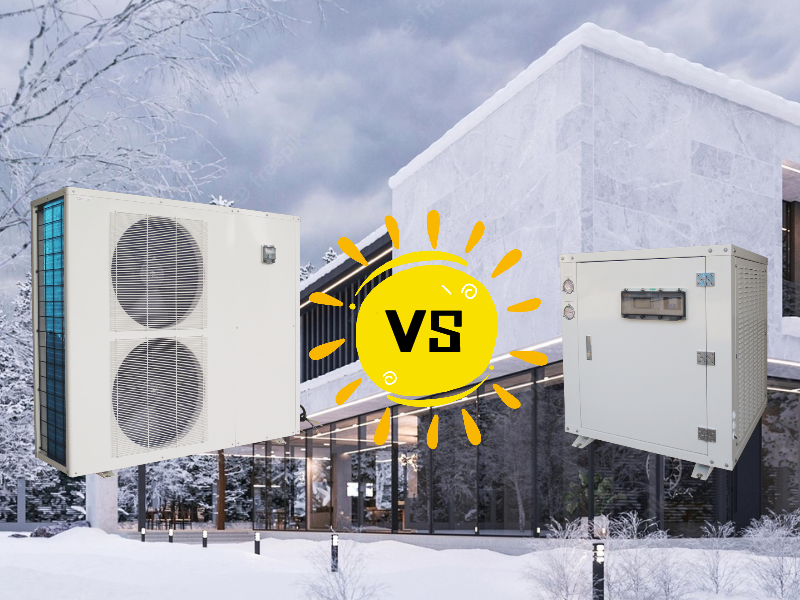An energy-saving alternative to the traditional fuel-burning furnace, a heat pump is ideal for the budget-minded, environmentally responsible homeowner. But should you choose a less-expensive air-source heat pump or invest in a geothermal system?
How Heat Pumps Work
A heat pump works in a completely different way than a traditional furnace. Rather than burning fuel to produce heat, a heat pump simply moves heat from one location (the “source”) to another location. Air-source heat pumps collect and transfer heat from the air while geothermal heat pumps collect and transfer heat from the ground. Both types of heat pumps can also work as cooling systems in the summer, transferring heat from inside to outside. As compared to traditional furnaces and air conditioners, heat pumps require very little energy to operate and dramatically reduce harmful emissions.
Geothermal vs. Air-Source Heat Pumps
In terms of efficiency, geothermal heat pumps are far superior to air-source models. This is because the temperature below ground is relatively stable as compared to the air temperature above ground. For instance, the ground temperature at a depth of 10 feet is likely to remain at about 50 degrees Fahrenheit all winter. At this temperature, a heat pump operates at peak efficiency. In fact, within the right temperature range, the most efficient air-source heat pumps can operate at about 250 percent efficiency. That means for every $1 you spend on electricity, you receive $2.50 worth of heat. However, when above-ground temperatures drop below about 42 degrees, air-source heat pumps begin to operate less efficiently. Ice will begin to form on the outdoor unit, and the heat pump need to enter an inefficient defrost mode regularly to compensate. Because a geothermal heat pump is extracting heat from a source with a consistent temperature, it is continuously operating at its most efficient level – at about 500 percent efficiency. The same is true in the summer when ground temperatures generally stay between 60 and 70 degrees. While an air-source heat pump can operate as an efficient cooling system at moderate temperatures, it becomes much less efficient when the temperature climbs to, say, 90 degrees or higher. According to the EPA, a geothermal heating and cooling system can reduce energy consumption and corresponding emissions by more than 40 percent as compared to an air-source heat pump, and by over 70 percent as compared to standard heating and cooling equipment.
Post time: Feb-03-2023


